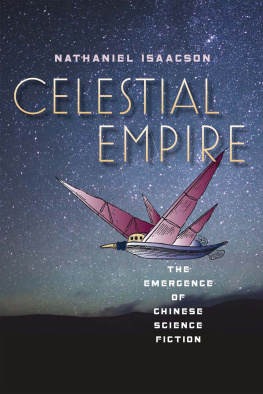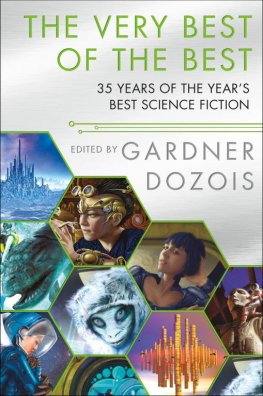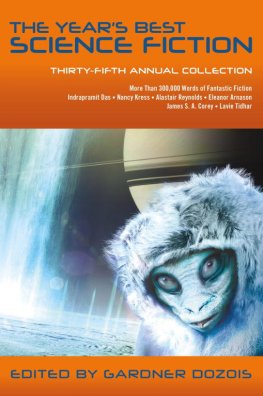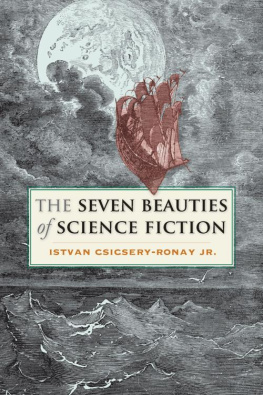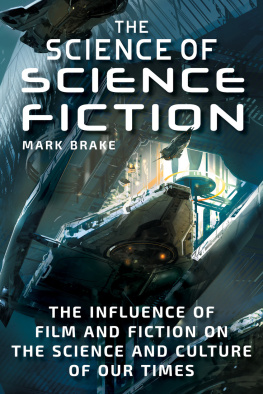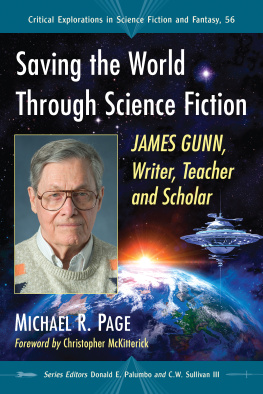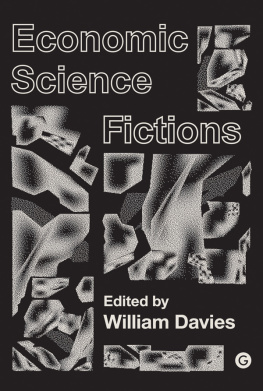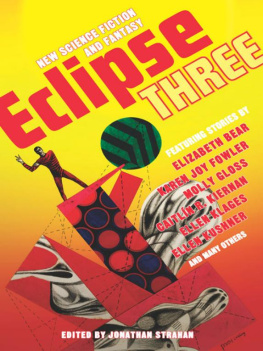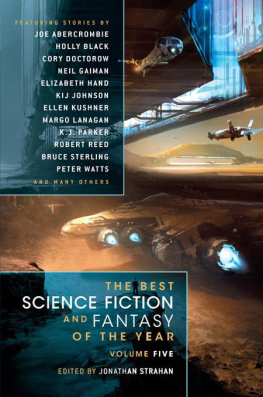
CELESTIAL EMPIRE
CELESTIAL EMPIRE
The Emergence of Chinese Science Fiction
NATHANIEL ISAACSON
WESLEYAN UNIVERSITY PRESS
Middletown, Connecticut
Wesleyan University Press
Middletown CT 06459
www.wesleyan.edu/wespress
2017 Nathaniel Isaacson
All rights reserved
Manufactured in the United States of America
Designed by Richard Hendel
Typeset in Miller and Gill types by
Tseng Information Systems, Inc.
Library of Congress Cataloging-in-Publication
Names: Isaacson, Nathaniel, author.
Title: Celestial empire: the emergence of Chinese science fiction / Nathaniel Isaacson.
Description: Middletown, Connecticut: Wesleyan University Press, 2017. |
Includes bibliographical references and index.
Identifiers: LCCN 2016028269 (print) | LCCN 2016046258 (ebook) | ISBN 9780819576675 (cloth: alk. paper) | ISBN 9780819576682 (pbk.: alk. paper) | ISBN 9780819576699 (ebook)
Subjects: LCSH: Science fiction, ChineseHistory and criticism.
Classification: LCC PL2275.S34 I83 2017 (print) | LCC PL2275.S34 (ebook) | DDC 895.13/0876209dc23
LC record available at https://lccn.loc.gov/2016028269
5 4 3 2 1
Cover illustration: A Chinese depiction of what was most likely an unmanned, steam-powered aircraft made by American inventor Samuel Langley (18341906). Dianshizhai huabao (c. January 1897January 1898).
CONTENTS
ACKNOWLEDGMENTS
When I first began research for this project as a PhD student at UCLA, I was under the impression that I would be able to cover the entire twentieth century and that the paucity of available materials would mean that the decisions about what to include and what to exclude had already been made for me. As I neared completion of the dissertation, my adviser confessed to me that when I had originally proposed the project, he had thought it was not feasible at all. I am eternally grateful to him for having the patience and wisdom to let me find out the answer to this question on my own. In the intervening years, I think that it is safe to say that both of us have been proven wrong. Chinese science fiction has emerged as a field in its own right, with scholars producing research and translation at a breakneck pace. This research continues to expand the field of Chinese science fiction, examining its relationship to Chinas own literary canon and to science fiction as a global phenomenon.
I would like to thank North Carolina State University and UCLA for supporting this research from its earliest stages up through publication. Travel and research funding from North Carolina State University, which allowed me to conduct research at libraries in Beijing and Shanghai, and a dissertation-year fellowship from UCLA and a Distinguished Teaching Assistant fellowship were especially helpful. I owe special debts to Theodore Huters, David Schaberg, Jack Chen, Shu-mei Shih, Andrea Goldman, and Robert Chi for their mentorship during my PhD studies. I also owe a great debt to Paola Iovene for her careful review of my dissertation, which played a significant role in the revisions that went into this manuscript. I am grateful to Carlos Rojas, Andrea Bachner, Chris Hamm, and Eileen Chow for their mentorship and support, especially in presenting and revising various versions of me through the field of Chinese science fiction. Jennifer Feeley, Sarah Wells, and all the panelists at the 2011 Visions of the Future: Global Science Fiction Cinema conference in Iowa City, Iowa, were instrumental in convincing me that truly interdisciplinary work was worth the toil. I am also grateful for the support and encouragement of my graduate cohort at UCLA: David Hull, Maura Dykstra, CedarBough T. Saeji, Brian Bernards, Jennifer T. Johnson, Matthew Cochran, Aynne Kokas, Winnie Chang, Hanmo Chang, Ma Lujing, and Makiko Mori. In China, I would also like thank Li Guangyi, Ren Dongmei, and Jia Liyuan for their guidance and support.
I would also like to express my sincerest appreciation to the reviewers of my articles and book manuscript. Thanks are also due to Arthur Evans, Parker Smathers, and the rest of the staff at Wesleyan University Press for their guidance, expertise, and support through the process of writing and revision.
Finally, I would like to express my gratitude to my wonderful and supportive wife, Kaori Isaacson, and our two children, Kenzo and Karina, for their patience during the past years. My father and mother, Ken and Martha Isaacson, my brother and sister, Tyler and Natasha, continue to be an inspiration as well. This book is dedicated to them.
CELESTIAL EMPIRE
INTRODUCTION
COLONIAL MODERNITY AND CHINESE SCIENCE FICTION

This interdisciplinary cultural study of early twentieth-century Chinese popular science writing and science fiction (hereafter SF) and its relationship to the colonial project and industrial modernity traces the development of the genre in China from its early history in the late Qing dynasty through the decade after the New Culture Movement (roughly 19041934). The emergence of Chinese SF was a product of the transnational traffic of ideas, cultural trends, and material culture that was engendered by the presence of colonial powers in Chinas economic and political centers. In particular, I argue that the relationship between SF and Orientalist discourse is a defining feature of the genre in early twentieth-century China. Through readings of historical accounts of the introduction and institutionalization of science in China, pictorial representations of real and imagined scientific and technological innovations, writing on the role of science in the quest for national renewal, and a number of original works of Chinese SF, I demonstrate that late Qing and Republican period intellectuals through the 1930s were preoccupied with the question of the relationship between science, fiction, and empire. In the context of the colonial threat, a profound pessimism emerged about Chinas fate as a nation, and this pessimism permeates discourses on science and works of SF from this period.
I engage with a number of fields, principally modern Chinese literary studies, modern Chinese intellectual history, postcolonial studies, SF studies, and utopian studies. For China scholars, especially cultural and intellectual historians and literary scholars, I provide a survey of the relationship between the emergence of Chinese-language SF and the emergence of modern Chinese literature. For scholars of SF studies, I demonstrate how a previously neglected subset of the SF tradition has been influenced by the legacy of empire and expand the geographic scope of global SF studies. In order to make this work more accessible to those unfamiliar with early twentieth-century Chinas intellectual history and its more long-standing historical resonances, I provide biographical notes and citations of accessible English-language studies whenever possible.
This study parallels other emerging work examining the role of genre fiction in the history of modern Chinese literature and its relationship to an ongoing project of moral and political education through fiction. SF has occupied and continues to hold a unique position in Chinas literary scene, as a tool of popularization of scientific knowledge, a vehicle for expressing anxieties and hopes for modernization and globalization, and a medium of social and historical critique. Related to the problems and questions that arise in attempting to define SF as a genre is the question the genealogy of SF in China: while some scholars see prototypical examples of SF in premodern Chinese genres such as fantasy and stories of the strange (
Next page
